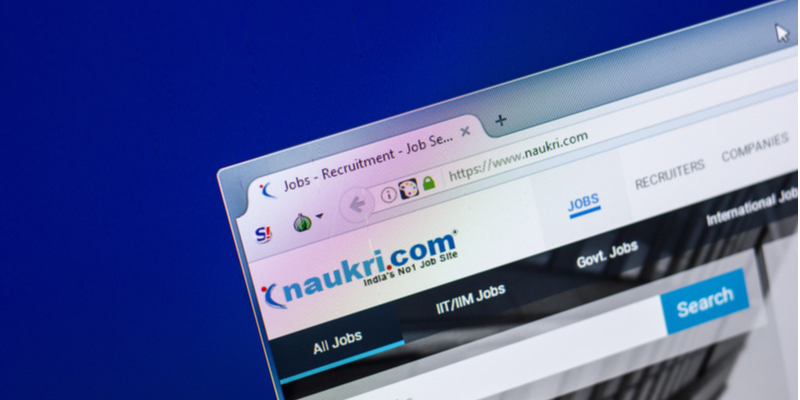Adapting HR policies for the gig workforce
According to a report by NITI Aayog, the gig workforce is expected to increase to 23.5 million by 2030.
The rise of the gig economy has reshaped the traditional way we work in this rapidly evolving work environment. According to a report by NITI Aayog, the gig workforce is expected to increase to 23.5 million by 2030. Globally, up to 162 million people in the US and Europe work independently, as evidenced by the findings of the McKinsey Global Institute.
The emergence of the gig workforce in India—fueled by the rise of ecommerce, online shopping, ride-hailing, and hyperlocal delivery apps—has changed the definition of work and is becoming a major engine of economic expansion.
Access to economic prospects has become more democratic, thanks to these platforms, especially for groups like homemakers, students, and residents of Tier II and III cities.
Recent statistics indicate that a sizable section of India's workforce works as gig workers, which helps to create jobs and empower the country's economy. The NITI Aayog report states that gig workers are expected to form 6.7% of the non-agricultural workforce, or 4.1% of total livelihood in India by 2029-30.
Growth drivers
Technological developments, shifting consumer preferences, and the desire for more efficiency in service delivery have contributed to the gig work trend.
The gig economy presents an advantageous scenario for companies and independent contractors. It offers businesses access to a wide array of skilled professionals, facilitating efficient task completion and frequently leading to cost savings.
Besides, startups have upended the notion of the traditional way of work by giving people more freedom and control over their jobs, marking a profound shift in mindset.
The economic empowerment facilitated by the gig economy cannot be understated. Millions of people use it to support themselves, augment their income, and achieve financial independence. Additionally, it made it possible for companies to grow quickly, use resources optimally, and satisfy shifting consumer expectations.
With the rise of a hybrid work culture, coupled with improved online collaboration capabilities, gig workers are more in demand. Also, it's now simpler for companies to oversee and collaborate with independent contractors and freelancers globally.
Retooling HR policies for gig workforce
Companies need to strategise their approach to managing their workforce as the culture continues to grow. Therefore, it is important to implement inclusive HR policies to ensure the workforce receives fair treatment, respect, and dignity.
Organisations should priortise creating learning and development programmes customised to the special requirements of gig workers and provide them with chances to grow in their careers and acquire new skills.
Consider establishing a streamlined process for swiftly onboarding gig workers, effectively managing and enhancing their performance and handling offboarding procedures.
When gig workers are not integrated into the HR cycle, the company overlooks opportunities to expedite their onboarding and enhance performance. The company's culture must prioritise inclusiveness, diversity, and trust to foster a sense of belonging and community among gig workers.
A new Deloitte study, titled Global Human Capital Trends, emphasises how workforce management strategies should embrace diversity and inclusion and how the economy is moving toward more flexible and independent work arrangements.
Entrepreneurs and businesses must view gig workers as essential stakeholders rather than mere freelancers to thrive in the gig economy. By recognising their significance in the workforce, companies can foster loyalty and dedication by positioning their brands as social enterprises and supporting causes that resonate with them.
When organisations integrate gig workers as valued team members, these temporary employees may be inclined to engage in future projects, potentially evolving into valuable assets within the talent pool.
Some may even express interest in transitioning to permanent roles within the company. PwC's Future of Work poll predicts that flexible employment patterns will dominate the workforce by 2025, necessitating adjustments to businesses' HR strategies.
Closing thoughts
In conclusion, the gig economy presents unprecedented opportunities for individuals and businesses alike—marking a transformative influence in the realm of employment.
With the burgeoning gig economy in India, organisations must prioritise the development of inclusive HR policies that empower gig workers, promote diversity and inclusion, and foster an atmosphere of mutual respect and trust.
They can navigate the complexities of the gig economy and thrive in the evolving work landscape by embracing principles of fairness, equality, and compassion.
Sumit Sabharwal is the Head of HR Shared Services at Fujitsu International Regions.
Edited by Suman Singh
(Disclaimer: The views and opinions expressed in this article are those of the author and do not necessarily reflect the views of YourStory.)













![[Funding alert] Professional women network leap.club raises additional funds from Titan Capital, others](https://images.yourstory.com/cs/2/b87effd06a6611e9ad333f8a4777438f/Imagerhz9-1590040039551-1595225122914.jpg)